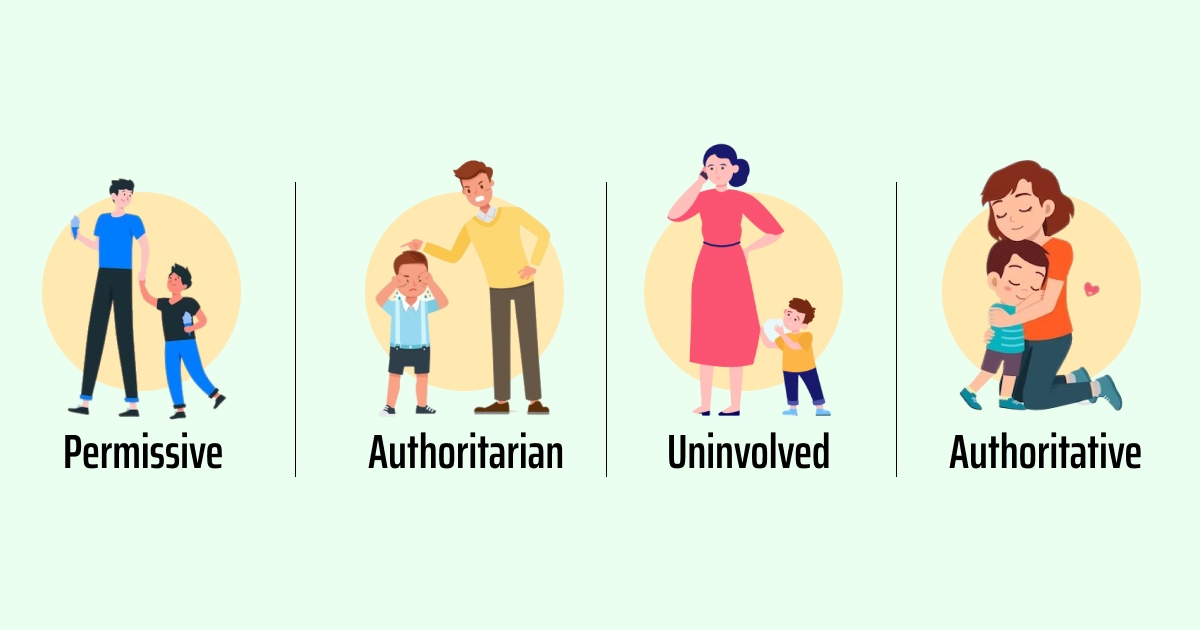For many parents, the question of “Is homeschooling better for mental health?” has become a growing point for concern especially in recent years.
Surprisingly, about 6% of school-aged children were home schooled during the 2021-2022 school year, indicating a growing trend in alternative education. This has encouraged parents to look into, “Is homeschooling better for mental health of my kids?”
But before we explore whether homeschooling improves mental health, let us first look at what is homeschooling and how does it work.
We will also be comparing homeschooling vs public schooling for a more nuanced approach to understanding how homeschooling can improve your child’s mental health.
What Is Homeschooling And How Does It Work
If you’re considering homeschooling for your child, it’s essential to understand the basics. The homeschooling movement gained momentum in the 1970s and has become increasingly popular today.
Homeschooling revolves around parent-directed education conducted within the comfort of your home. Families often choose homeschooling for various reasons, with the freedom it offers being a primary motivation.
By teaching your child at home, you gain the freedom to choose a curriculum that aligns with your child’s interests and learning style, to design a school schedule that fits your family’s unique needs, and even to incorporate travel into your child’s educational experiences.
Some states have minimal demands, while others may require portfolio reviews, attendance records, or periodic standardized testing.
However, in most areas, having a formal education degree isn’t necessary to homeschool your child successfully; having the right mindset and commitment is what truly counts.
Homeschooling vs Public schooling
While comparing homeschooling vs public schooling, we can see Public Schools offers a structured and diverse learning environment that emphasizes social interaction and standardized education.
Students have the opportunity to develop crucial social skills and build diverse relationships with peers from various backgrounds.
Certified teachers with expertise in different subjects provide professional guidance and support, ensuring that students meet educational standards and are prepared for higher education or the workforce.
Public schools offer a comprehensive curriculum that is standardized and designed to expose students to various subjects and extracurricular activities.
However when distinguishing between homeschooling vs puiblic schooling, we must consider the mental health factors for each approach to schooling.
Some kids might feel like school is all about being the best and getting the highest grades. This pressure can make them feel really anxious, especially if they find it hard to keep up.
School can sometimes feel like there are certain groups that everyone belongs to, and if you don’t fit in, it can make you feel left out and lonely.
Each approach has its own set of benefits, and the decision should be based on what best suits the needs and goals of the child and the family.
Read More: 10 Positive Parenting Tips For Toddlers You Can’t Miss
Is Homeschooling Better for Mental Health?
As a parent, you might be curious and ask yourself the question, “Is homeschooling better for mental health.”
The answer to this question depends on the child and your parenting style for your kid.
Some parents love homeschooling because it lets them give their kids lots of personal attention. This can make your child feel safe and secure, away from the stress and pressures that sometimes come with regular schools.
Without the stress of social pressures or bullying, children may experience less anxiety and develop a healthier self-esteem.
Homeschooled children often have more control over their schedules, reducing academic pressure and allowing for a better balance between learning and leisure activities.
In short, the answer to the question, ‘Is homeschooling better for mental health of my kid?’, really depend on how you want your child to develop. The positives of homeschooling definitely gives a boost to your child’s mental health.
But there’s another side to consider. Some people worry that homeschooling might make it harder for kids to make friends and feel comfortable around different people. Socializing and learning to handle all sorts of situations is essential for your child’s growth.
This lack of socialisation and isolation often lead to serious mental issues among children. So you must consider what benefits your child the most.
Plus, being in charge of your child’s education can sometimes be a lot of work and might bring its own stresses.
Read More: Self Care For Parents: 10 Tips And Tricks To Keep Together
However, in order for you better gauge whether homeschooling is better for the mental health of children, let us look at some advantages and social benefits of homeschooling.
Homeschooling Advantages
As we have seen from the social benefits, homeschooling provides a holistic development of your child. However, there are other homeschooling advantages that you should consider.
Here’s why it could be an excellent option for your family:
1. Personalized Learning
With homeschooling, you have the freedom to customize your child’s education according to their unique learning style and pace. This means you can focus on their strengths and interests, making learning more engaging and effective.
2. Individual Attention

Being your child’s primary educator allows you to provide one-on-one support, ensuring they grasp concepts fully and feel supported throughout their educational journey. This individual attention shows why is homeschooling better for mental health of kids suffering from trauma or mental health issues.
3. Flexible Schedule
Homeschooling offers a flexible schedule that can be tailored to your family’s lifestyle. This means more quality time for family activities, trips, and a chance for your child to explore their hobbies and passions.
4. Instilling Values
Through homeschooling, you have the opportunity to impart your family’s values and beliefs into your child’s education, helping them develop a strong moral compass and a sense of responsibility.
5. Safe Learning Environment
Homeschooling provides a safe and nurturing environment where your child can learn without the distractions and pressures often found in traditional school settings. This can foster a sense of security and emotional well-being.

Homeschooling allows you to incorporate fun and interactive learning experiences, making education enjoyable and meaningful for your child. You can include exciting experiments, educational outings, and hands-on activities that enhance their understanding of various subjects.
Social Benefits Of Homeschooling
Homeschooling, beyond its academic advantages, has been associated with various social benefits that contribute to a child’s overall development.
Studies suggest while the conventional school environment provides ample opportunities for social interaction, homeschooling fosters unique social dynamics that can positively impact a child’s social skills, emotional intelligence, and worldview.
Here are some of the social benefits of homeschooling:
1. Tailored Social Interaction
home schooled children often engage with individuals of different age groups, including adults, which can foster mature social skills and effective communication abilities.
This diverse social exposure enables them to navigate various social contexts with confidence and adaptability.
2. Strong Family Bonds
The intimate setting of homeschooling allows for deeper family connections, promoting a supportive and nurturing environment that is conducive to emotional well-being.
Strong family bonds serve as a foundation for building secure and resilient individuals capable of forming healthy relationships outside the family unit.
Read More: What Are Family Relationships? 11 Types and Key Benefits
3. Community Engagement
Homeschooling communities often organize cooperative learning opportunities, group activities, and field trips, providing children with a sense of community and belonging.
These interactions promote collaboration, teamwork, and the development of interpersonal skills crucial for thriving in social settings.
4. Cultivation of Independence
Through self-directed learning and personalized educational experiences, home schooled children often develop a strong sense of independence and self-reliance.

This fosters a proactive approach to learning and problem-solving, laying the groundwork for confident and resilient individuals capable of navigating diverse social environments.
Read More: 7 Tools To Foster Autonomy And Encourage Child Development
5. Holistic Socialization
home schooled children have the opportunity to engage in a more diverse range of social experiences that extend beyond the confines of a traditional classroom.
This exposure to real-world scenarios and varied social settings enables them to develop a comprehensive understanding of social dynamics, diverse perspectives, and cultural nuances, fostering a broad and inclusive worldview.
These social benefits of homeschooling highlight the fact that despite having academic advantages, homeschooling gives a holistic development to your child.
Read More: What is Child Development? Understand 5 Crucial Stages
Homeschooling provides a rich and diverse social environment that nurtures emotional intelligence, interpersonal skills, and a strong sense of community for the child.
Fun Facts About Homeschooling
Homeschooling often prioritizes the teaching of practical life skills, such as gardening, carpentry, and financial management. With the advancements in technology, homeschooling has embraced virtual learning platforms, allowing students to access a diverse range of online resources.
The following are some fun facts about Homeschooling that have been unearthed through research:
1. Rising Homeschooling Trend
In the 2021-2022 academic year, around 3.1 million home schooled students were in the United States, representing about 6% of school-age children. This number has been consistently increasing over the past few years.
2. Widely Accepted
Homeschooling is practiced by a diverse group of people, including individuals of different religious beliefs, political affiliations, income levels, and racial backgrounds. Approximately 41% of homeschool families are non-white/non-Hispanic.
3. Savings for Taxpayers
Taxpayers spend an average of $16,446 per pupil annually in public schools. The roughly 3.1 million home schooled students in 2021-22 represented a savings of over $51 billion for taxpayers. Homeschool families spend an average of $600 per student annually, meaning they are not reliant on public, tax-funded resources for education.
4. Academic Excellence of Homeschool Students
Home-educated students typically score 15 to 25 percentile points above public-school students on standardized academic achievement tests.
Studies show that home schooled students perform significantly better academically compared to students in institutional schools. Academic success in homeschooling is not significantly affected by parents’ level of formal education or whether they were certified teachers.
The degree of state control and regulation of homeschooling does not seem to impact academic achievement. home schooled students also tend to perform above average on standardized tests like the SAT and ACT, which are considered for college admissions.
A Word From Mind Family
We understand the importance of providing a nurturing environment that fosters both academic growth and emotional well-being. That is why it is normal for parents to seek answers to the question, ‘Is homeschooling better for mental health?’
Through our commitment to providing a holistic learning experience, we have seen our children thrive academically and socially, equipped with the skills and confidence to navigate the world around them.
Understanding what is homeschooling and how does it work can help you develop a specialised curriculum for your child that can provide them a holistic growth. Learning about the fun facts about homeschooling shows us the growing trend of home schooled children in the US.
Whether you choose homeschooling or public schooling, what matters most is creating an environment that nurtures a love for learning, fosters resilience, and instills a sense of curiosity and exploration.
Frequently Asked Questions (FAQs)
1. What is homeschooling and how does it work?
Homeschooling is a form of education where parents or guardians take on the role of the primary educators for their children. It involves teaching children at home, following a curriculum of their choice, and often customized to the child’s learning style and pace.
2. What are the social benefits of homeschooling?
Some social benefits of homeschooling include tailored social interaction, fostering strong family bonds, encouraging community engagement, promoting the cultivation of independence, and providing holistic socialization through diverse real-world experiences.
3. What are some homeschooling advantages?
Homeschooling offers several advantages, including personalized learning tailored to the child’s needs, individual attention from the educator, a flexible schedule that accommodates family life, the ability to instill specific values and beliefs, and a safe learning environment free from external distractions.
4. Is homeschooling better for mental health?
Homeschooling can have positive impacts on mental health by providing a safe and nurturing environment, allowing for personalized attention and tailored learning experiences. However, it’s essential to balance this with opportunities for socialization and engagement with peers to ensure holistic development.
5. What are some fun facts about homeschooling?
Homeschooling not only prioritizes academic education but also emphasizes the teaching of practical life skills, such as gardening, carpentry, and financial management. This approach enables children to gain valuable knowledge beyond traditional subjects, fostering a well-rounded skill set for their future endeavors.


















Leave a Reply